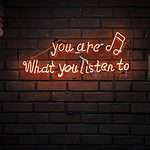Conversational Topics for Specific Language Levels (A1, A2, B1, B2, etc.)

Establishing which language level you're at can be quite tricky. Not only do you have to know how large your current vocabulary is, but also you have to be able to talk about specific topics.
This knowledge can be useful for three purposes:
- To measure your language level more precisely
- To choose a conversational subject for your lessons or speak-to-yourself sessions
- To be well-prepared for official certificates
If you fail to meet these conversational requirements, it can be quite difficult to pass appropriate exams.
Read more: How To Learn German From Scratch To A B2 Level In 5 months: A Case Study
Of course, if you just learn for fun or you don't need official papers, you shouldn't worry too much about being able to talk about all those topics.
Let's dive right in and learn what they are.
Conversational Topics for Specific Language Levels
A1 - BREAKTHROUGH (requirements)
Let's be honest. You don't know much at this level and not much is expected of you. Still, you should be able to discuss the following topics.
Expected conversational depth level: very superficial
Expected vocabulary depth: everyone is happy that you know any words at all and that you can string them into semi-coherent sentences.
A1 Conversational topics
- Personal information and introductions
- Offers and requests (can you ..., do you want to ... ?)
- Free time and daily routines
- Past events, first times, important events in your life (e.g. describing what you did last weekend)
- Describing places, homes (... is big/small/red/etc.)
- Shopping, food (e.g. ordering something at the restaurant)
- Work/study life (What do you do _______?)
- Describe people
- Getting around
- Suggestions/arrangements to meet (e.g. inviting someone somewhere)
- Journeys/visiting places/means of transport
A2 - WAYSTAGE (requirements)
You know simple words, phrases with very limited reading skills and cannot keep up with conversations in the language. You still second guess your choice of words and constantly refer to guidelines.
Expected conversational depth level: superficial,
Expected vocabulary depth: you should know the most basic of all the words. No fancy or precise vocabulary belongs is expected of you.
A2 Conversational topics
Here are conversational topics you should be able to talk about at this level (source):
- The individual* personal particulars* appearance* clothing* daily routine
- Partnership* family* relatives* acquaintances, friends* classmates/ colleagues
- Family* family members* family occasions /celebrations
- Place of living* house/flat* furnishing of the living-room /bedroom* kitchen furniture, gadgets* the street, the town* (sharing the housework)
- Traveling/transport* means of transport* timetable/information* buying tickets (bus, train, plane)* traveling documents
- Shopping/shops* shops* special shops* electronics* markets* grocery* clothes shops* departments in a shopping center
- Communication/keeping in contact* post (letter, postcard)* telephone / fax* text messages, e-mails
- Services* restaurant (menu, ordering, paying)* hotel (booking, paying)
- Culture/entertainment–* free time activities* guests* cinemas* theatres* museums* concerts
- Time/weather* seasons* weather* rainy weather/winter weather/snowing
- Health/illnesses* at the pediatrician’s* at the doctor’s* at the dentist’s* some common illnesses(flu, cold)* medication* at the chemist’s
- Sport* popular sports* football* athletics* doing sports* sport and hobby
- Media* television* radio* newspapers* magazines
- Hobby* reading* listening to music* computer games* the candidate’s favorite pastime
- Studying/work* subjects* popular professions* workplaces* colleagues / school-friends* daily routine at home / at work
Here are sample A2 speaking tests:
Here is an excerpt from a German A2 exam (passed by those candidates). Even if you don't know any German, just pay attention to the pace of this conversation. If you do, notice the simplicity of the vocabulary which is being used.
B1 - THRESHOLD (requirements)

Photo by Jukan Tateisi on Unsplash
This is the level which most people think of when they hear "conversational fluency". The gist of this level is that you can participate in a simplified conversation about popular topics.
Notice that topic-wise, this level is not that different from an A2. The main difference is that your vocabulary is bigger and hence you can talk about these subjects at a slightly deeper level.
Expected conversational depth level: you can discuss things at a slightly deep level
Expected vocabulary depth: you can convey many of your thoughts but you lack precision. Think "It's bad that people like" rather than "it's infuriating that people can be such mendacious scum"
B1 Conversational topics
Here are conversational topics you should be able to talk about at this level (source, source 2):
- The individual* personal particulars* appearance* inner characteristics* casual / evening wear
- Partnership* relatives, friends* acquaintances, neighbors* classmates/schoolmates/colleagues
- Family* family members* family occasions/celebrations* distribution of tasks in the family
- Place of living* house/block house/flat* furnishing/gadgets of the rooms* furnishing/gadgets of the kitchen and the bathroom* rent and bills* housework
- Traveling/transport* means of transport* public transport* timetable/information* buying tickets/preparation for a journey* traveling abroad/traveling documents
- Shopping/shops* shops/markets* department stores / departments* groceries/household goods* clothing* electric appliances
- Communication/keeping in contact* post (letter, telegram, parcel)* telephone (traditional, mobile, text messages)* Internet (e-mail, Skype, chat)
- Services* financial services (transfer, exchange)* restaurant (menu, ordering, paying)* hotel (booking, paying)
- Culture/entertainment* guests* cinemas* theaters* museums* concerts* library (school, at home, public)
- Time/weather* seasons/weather* weather forecast
- Health/illnesses
eating and drinking
at the doctor’s* common illnesses and their symptoms* prescriptions / medication /pharmacy - Sport* popular sports* national sports* doing sports
- Media* television* radio* newspapers / magazines
- Hobby* gardening / DIY* reading / listening to music* computer
- Studying/work* types of schools* subjects* popular professions/workplaces* daily routine
- European Union* members of the EU* travelling / work / mobility
- Culture and civilization* basic practical information regarding the home country and the target language country (weather, currency, eating habits, daily routine, celebrations, shopping opportunities, etc)* tourist attractions* accommodation / restaurants
- Holidays and celebrations
Here are sample B1 speaking tests:
- In English
I find this one especially fitting if you want to understand what this level is all about
- In German
B2 - INTERMEDIATE (requirements)
This level can be depicted as a FULL conversational fluency. You can have real conversations with native speakers about a variety of subjects.
Expected conversational depth level: you can discuss things at quite a deep level
Expected vocabulary depth: you can convey most of your thoughts but you still, for the most part, lack precision. Compared to a B1 level, you can discuss more topics with more precise vocabulary.
B2 Conversational topics
Here are conversational topics you should be able to talk about at this level (source and source 2):
- The individual* behavioral patterns* fashion/clothing/cosmetics
- Partnership* making friends (in person, on the net, etc.)* roles in the family* contacts at work / at school
- Family* family/bringing up children* relationship of generations / living together* marriage/forms of partnership
- Place of living* rental/property/lodgings* buying a flat/buying on credit /renovation* way of living in a town and a village
- Traveling/transport* driving/highway codes* walking, riding the bike* reasons/forms of traveling abroad
- Shopping/shops* shopping habits/commercials, ads* chains/shopping by mail* retail shops versus shopping centers
- Communication/keeping in contact –* reasons for the popularity of mobiles* the role of language knowledge in communication* the increasing dominance of the English language
- Services* car rental / travel agencies* repairs / guarantees
- Culture/entertainment* books versus Internet* cinema, theatre versus TV, video, DVD* he Internet and the social networking sites
- Time/weather* role and accurateness of forecasts* relationship between climate and flora/fauna
- Health/illnesses* outpatient department / hospital / specialists* nature cure – medicines* prevention / screening* healthy diet
- Sport* doing sports – healthy lifestyle –dangerous/extreme sports* ball games / team sports / rules* water sports/winter sports* Olympic Games
- Media* features of newspapers, their columns* sensation and news
- Hobby* pursuing amateur arts* clubs (sport, cultural, professional)* hobby and work* modern/peculiar hobbies
- Studying/work* language knowledge / skills / career* equal chances in education / finding a workplace* unemployment* exchange programs / scholarships abroad / professional development* new forms of studying
- European Union* work in the EU* language teaching/language knowledge/work opportunities in the EU
- Culture and civilization The home country and the target language country* population / ethnic minorities* historic traditions / monuments / cultural values* artistic / ethnographic characteristics
- Public life* public institutions / personal documents* public safety* national holidays
- Environmental protection* pollution (air, water, soil, et)* selective waste management* recycling* alternative sources of energy
- Current topics/events* public life / politics / NGOs* economy
- Education system
Here are sample B2 speaking tests:
- In English
C1 - ADVANCED/PROFICIENT (requirements)
In linguistic terms, proficiency does not translate to the same meaning as fluent. To state you are proficient means you are comfortable with the use of the language in spoken and written form but not at the same level as a native speaker.
Read more: The Word Substitution Technique – How To Increase Your Vocabulary Size Considerably.
Expected conversational depth level: you can discuss things at a (very) deep level (depending on a subject)
Expected vocabulary depth: not only can you convey almost every thought but your language is also becoming more and more natural. You start using idioms and distinguishing between different shades of meaning of many words.
C1 Conversational topics
Here are conversational topics you should be able to talk about at this level (source):
- The individual* ambition/career building* the individual and the society* problems of social integration
- Partnership* forms of partnership* nationalities/minorities
- Family* the social status of families / the system of family allowances* family/career
- Place of living* housing situation/difficulties in building a house* homelessness / its causes/ problems* housing and mobility
- Traveling/transport* problems of city traffic / public transport versus using cars* transport and environmental protection* tourism as a source of income* development in transport / its aspects
- Shopping/shops* consumers’ society* buying on credit/with credit cards/on the Internet* shopping tourism
- Communication/keeping in contact* the Internet in business communication* Fax, e-mail versus traditional letter writing* less widely used languages versus English
- Services* quality/guarantee of services* role, significance of services* electronic services / online ordering
- Culture/entertainment* role of arts in the past and present* public collections and their maintenance / art / historic relics / monuments* mentorship / sponsorship / advertising
- Time/weather* natural catastrophes and their consequences* hole in the ozone layer/dangers of global warming
- Health/illnesses* science/research serving medical care / genetics* alternative methods of healing* health tourism
- Sport* first-class sports – mass sports/doping* professionalism in sports / amateur sports / extreme sports* sport and women (chess, boxing, weightlifting, football)* sport and commercials
- Media* objectivity / impartiality of providing information* stars / celebrities
- Hobby* promoting traditions* exclusive hobbies (golf, horse riding, scuba diving, etc.)* hobby and/or professionalism?
- Studying/work* (over) qualification/chances on the work market* lifelong education* finding work/mobility* chances of the underprivileged
- European Union* the role of the EU in world politics* common / national currency
- Culture and civilization The home country and the target language country* fame/recognition in the world / their relationship to each other* their image* differences in traditions / customs / ideology
- Public life* the purity of public life / corruption* political parties / elections / referendum
- Environmental protection* prevention in environmental protection* environmental catastrophes and their consequences
- Current topics/events* public life / politics / NGOs* economy / arts / sports
- Globalization* uniformity (dressing, eating, culture, consumer products, etc.)* globalization / maintaining national characteristics
- Current questions on ethics* animal experiments* nuclear experiments
- Current questions on economy/society–* smuggling: goods/people* smoking/dangers of drug addiction
Here are sample C1 speaking tests:
- In English
- In German
C2 - MASTERY (requirements)

Photo by Ashton Mullins on Unsplash
C2 Conversational topics
No need to waste my breath, or fingertips, here. At this level, you are absolutely fluent and can talk about almost everything. No wonder! You're approaching the level presented by well-educated-native speakers.
My only advice for you at this level is to dive into details of any topic you decide to discuss. You need to put in lots of effort to activate all those obscure words. Don't talk just about shopping. Discuss "high-impact strategies to increase a wholesale diversification". Or, you know, something of this sort.
Conversational Topics for Specific Language Levels - Summary
Knowing conversational topics for specific language levels is crucial if you want to pass any official certificate. Even more so if you decide to do it on your own. Such knowledge allows you to shield yourself from any unpleasant surprises during the speaking part of an exam.
However, if you feel no need to obtain any official documents, knowing conversational topics for specific language levels can help you prepare better for your lessons or even give you lots of question ideas for your self-talk!












This was extremely helpful. Thank you!
Pleasure is all mine!